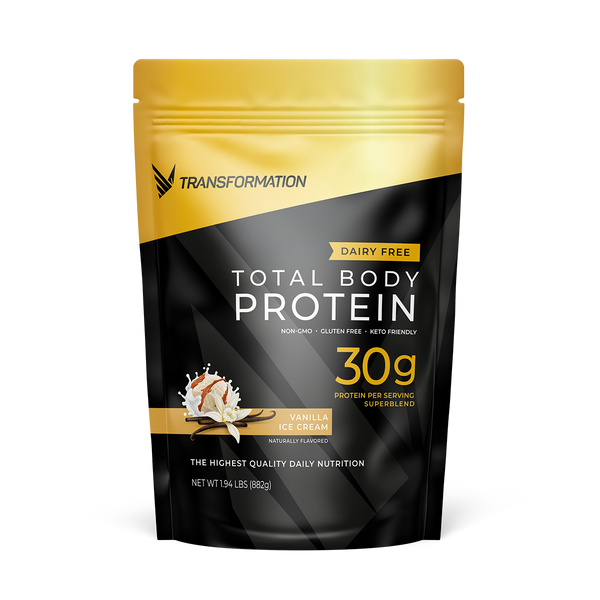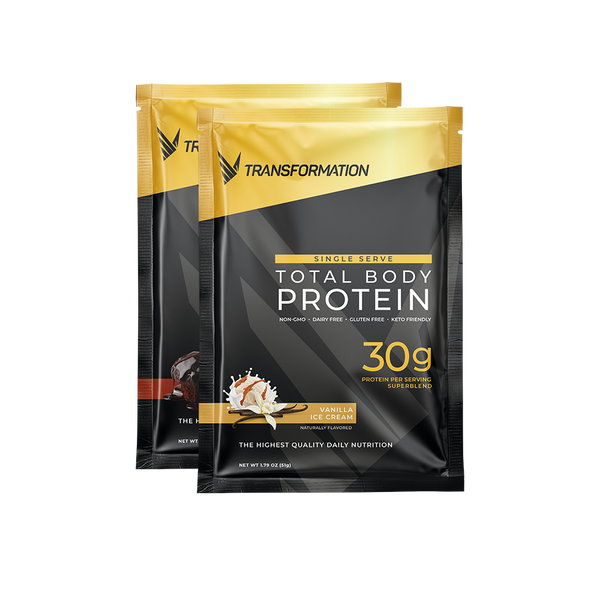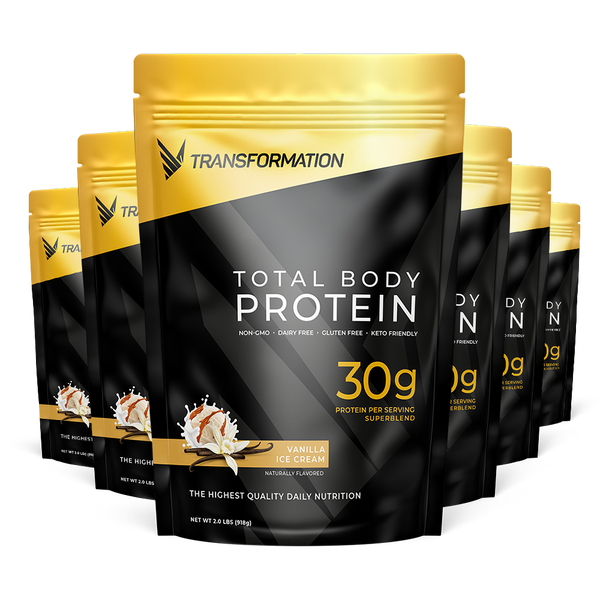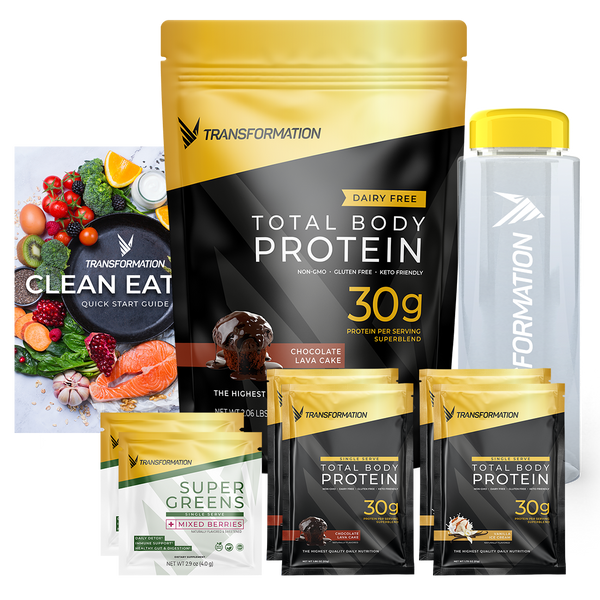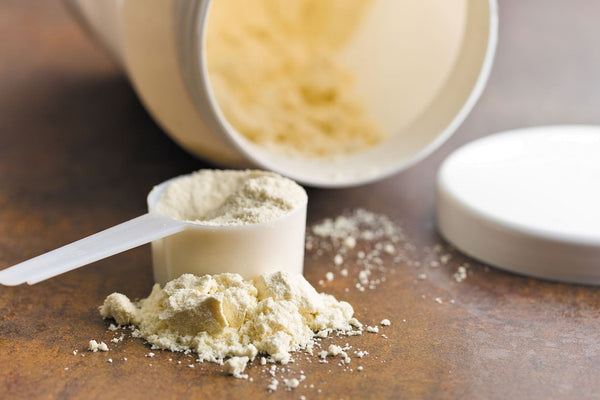
Whey Protein vs Whey Isolate: Understanding the Key Differences
Whey protein, a commonly used supplement, hides a crucial detail: there are two main categories – whey protein and whey protein isolate. Both come from milk, these two have distinct characteristics that may affect your fitness goals.
In this post, we'll break down their definitions, compositions, and benefits they bring. Let's jump into the whey vs. whey isolate comparison.
What is whey protein?

Whey protein comes from the liquid leftover from cheese production. This protein-rich liquid transforms into whey through processing, offering protein levels that usually range from 70-80%.
With its balanced composition, whey concentrate provides all essential amino acids and additional nutrients to support overall muscle growth and recovery.
It comprises two main types – whey protein concentrate and whey protein isolate.
Definition and composition of whey protein
Whey protein concentrate holds different protein levels, along with small amounts of fats and carbohydrates.
Further processing of whey protein isolate leads to a product with higher protein concentration and minimal fats and carbs.
Benefits of whey protein
Muscle growth: The amino acid profile of whey protein promotes muscle protein synthesis, aiding in muscle development and recovery.
Quick absorption: Whey protein gets absorbed rapidly, making it a good post-workout supplement for speedy recovery.
Versatility: It suits various dietary preferences and can be incorporated into shakes, smoothies, or recipes.
What is whey isolate?
Whey protein isolate takes the refinement process a step further, offering a purer form of protein with reduced fats and carbohydrates. It's a good option for those prioritizing a high-protein, low-calorie supplement.
Definition and composition of whey isolate

Coming from the liquid byproduct of cheese production, whey isolate undergoes advanced filtration to remove fats and lactose, resulting in a product exceeding 90% protein by weight. This process eliminates most fats, lactose, and carbohydrates.
The outcome is a protein source with a concentrated and rapidly absorbing amino acid profile, making whey isolate a good choice for individuals aiming to maximize their protein intake while minimizing additional caloric components.
Benefits of whey isolate
High protein concentration: Similar to egg white protein, whey isolate offers a complete range of essential amino acids crucial for muscle development. Ideal for those aiming to boost protein intake without the extra calories from fats and carbs.
Low lactose: Suitable for individuals with lactose sensitivities.
Fast absorption: Like whey protein concentrate, whey protein isolate gets quickly absorbed, aiding in efficient muscle recovery.
Differences between whey protein and whey isolate
|
Feature |
Whey protein concentrate |
Whey protein isolate |
|
Protein content |
Moderate (typically 70-80%) |
High (often over 90%) |
|
Lactose and fat content |
Higher levels |
Reduced levels |
|
Digestion and absorption |
Rapid digestion and absorption |
Rapid digestion and absorption |
|
Price and availability |
More economical and widely available |
Pricier due to additional processing, available in specialty stores |
Benefits of whey protein and whey isolate: a quick recap
Whey protein:
-
Versatile and cost-effective
-
Beneficial for overall muscle growth
-
Suitable for those with moderate lactose tolerance
Whey isolate:
-
High protein concentration
-
Low in lactose, suitable for lactose-intolerant individuals
-
Fast absorption for efficient recovery
Considerations for choosing between whey protein and whey isolate
Fitness goals: Whey protein concentrate may be sufficient for general fitness, while whey isolate is preferred by those prioritizing lean muscle development.
Lactose sensitivity: Whey protein isolate is the safer bet if lactose is a concern.
Budget: Whey protein concentrate is friendlier to your wallet, making it a good choice for those on a budget.
Whey protein concentrate provides a balanced approach for most fitness enthusiasts, while whey protein isolate is ideal for those who want a higher protein punch with minimal extras.
Is whey protein or whey isolate better for muscle growth?
Both are effective, but whey protein isolate may be preferable for those aiming for a higher protein concentration.
Can I use whey protein or whey protein isolate if I am lactose intolerant?
Yes, whey isolate is generally well-tolerated by individuals with lactose sensitivity.
How do I choose between whey protein and whey isolate?
Consider your fitness goals, budget, and lactose tolerance. If in doubt, consult a nutrition expert.
Closing thoughts
The whey protein versus whey isolate debate grabs attention, but there's no one-size-fits-all answer on which is better. It's about aligning your protein choice with your unique fitness goals.
While whey protein and whey isolate have their own merits, egg white protein provides an excellent alternative to traditional whey for those seeking a lactose-free protein supplementation with a complete amino acid profile.
When choosing your protein supplement, consider the versatility and benefits of egg white protein, and discover the wholesome goodness packed into each scoop of our Total Body Protein blend – because sometimes, the best gains come from breaking away from the whey.


